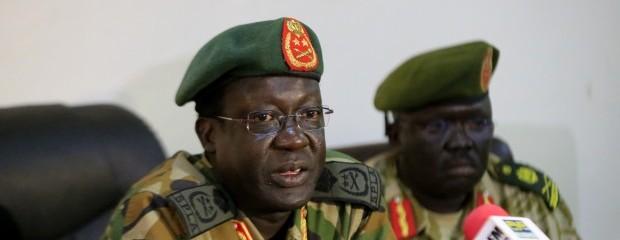Urbanization and the future of Sudan
Posted on behalf of Munzoul Assal
Despite decades of war,
Migration to
What is the implication of urbanization for the prospects of democratic transformation in
When the CPA was signed, many anticipated that
The failure of integration in
The ability of urbanization to foster national unity and integration is predicated on a theory of the "melting pot" whereby ethnic and tribal loyalties fade away over time, giving way to identifications that cut across different ethnic, regional or tribal boundaries. But
Pathological urbanization also affects long-term city residents Along with the pressure on urban services, the economic liberalization policies adopted during early 1990s led to a process of pauperization of middle class in the country as a whole. The Sudanese middle class that has historically been so politically influential is disappearing. Their shoes are filled by some "nouveau riches" who are closely allied to the ruling National Congress Party and, recently, the SPLM. This new class is unlikely to play a positive role in democratic transformation, wedded as it is to state patronage on an individual basis. Their interests lie in parasitic forms of capitalism rather than collective action. Disenchanted members of the old middle class have few choices: continue living in the country with ever dwindling possibilities, engage in multiple memberships in the newly emerging civil society forms, or leave the country altogether.
While old political affiliations are weakening, and ethnic or tribal identities are resurgent, the voting patterns of the city electorates are unclear. One thing that is positive about urbanization is the rising consciousness about rights. Thanks to the emerging civil society organizations that articulate the rights of marginalized segments. The rising awareness about rights suggests that voters will make new demands on their electoral candidates. Realizing the importance of the urban vote—and the fact that southerners in the north may determine the outcome of the 2011 referendum on self-determination in the south, political parties are adapting their messages accordingly.
Civil society organizations (CSOs), national NGOs and a variety of other groups are proliferating in urban areas. By the end of 2005, there were 1194 registered civil society organizations, in addition to 194 foreign NGOs, all physically located in







Munzoul has written one of the most important contributions to the discussion on the future of Sudan. Everyone who has visited Sudan is struck–and shocked–by the contrast between the prosperity of the metropolis and the deprivation of the peripheries. And, all one needs to do is to travel around the outskirts of Khartoum to see that the whole of Sudan is there. People are still tied to their homes in faraway provinces but are also being transformed by the city, and in turn transforming the city. Meanwhile, Darfur’s displaced are a microcosm of Sudan’s urban crisis.
Let me make three observations. One is to compare three urban insurrections in Sudan. The October 1964 revolution was an elite affair, very liberal, completely non-violent. The April 1985 popular uprising was a coalition between the elites (acting in the tradition of October 1964) and drought migrants on the edge of Omdurman. Both these protests brought southerners and northerners together on the streets. The August 2005 riots were markedly different–violent and with a distinct racial component. This is a mark of the changing political character of Khartoum.
Second, the apparently-inexorable process of urbanization compels us to reassess what we mean when we talk about “humanitarian emergency” or “crisis.” We tend to think of these as referring to some sort of aberration from normality, a disruption which, when it is over, leads to a return to normality. So we talk about “displaced people” rather than “migrants” or “squatters.” The difference between the two is that a displaced person is so defined because of her or his entitlement to relief, which goes with being under the purview of a relief agency and usually living in a camp, and is assumed to be a temporary state of affairs. A migrant or squatter doesn’t fall under the discipline of the humanitarian industry and is a person of transient status. But the experience of Sudan is that the displaced become part of the cities–absorbed rather than integrated, perhaps. The emergency is not a temporary disruption to normality, but an accelerated and traumatic transition to a different way of life.
Last, over the decades, the Sudanese authorities have seen migrants, refugees and displaced people as an economic burden on the cities and a security threat. The day-to-day actions of the municipalities and the police–harassment, restriction, refusal to extend resident rights–are testment to this. But successive governments have never taken any strategic actions to deal with the root causes of mass distress migration to the towns, such as making rural life stable and economically attractive, even when they know that a fair proportion of the migrants end up in the capital itself. Rather, the response is to continue to deprive and ravage the peripheries, while in the cities itself they try further more ambitious at control, including demolition of “illegal” settlements and relocation. How long can this form of governance last before its contradictions become untenable?
There’s much more to say on this topic and I am hoping that others will contribute their views.
Posted on behalf of Asif Faiz
Country Manager, Sudan Country Office, The World Bank
The paper by Munzoul Assal brings the reader’s attention to the changing economic and social landscape of Sudan, under the pressure of rapid urbanization and increasing inequality. Nowhere is this more evident than in Khartoum and in the major urban centers of Darfur—in the latter instance an unintended consequence of forced displacement of people (a third of Darfur’s population lives in peri-urban encampments that are beginning to evolve as urban settlements). As unfortunate as this may appear, rapid urbanization is not intrinsically bad and may serve as the key to social and economic transformation of Sudan, especially in terms of reducing pressure on scarce and dwindling natural resources—grazing land, forest, and water, in particular. The massive public investment in infrastructure (no less than 10 new bridges on the Nile in Northern Sudan) and rapid expansion of black top roads and high tension power lines spanning thousands of miles will further accelerate urbanization and migration to cities, no doubt characterized by uncontrolled and chaotic growth. But most megacities of the world have evolved and grown along a similar and inevitable pattern. Munzoul Assal’s pessimism about urbanization in Sudan and, in particular, Khartoum’s future as an urban ‘melting pot’ may not be fully justified in light of global experience with rapid urban growth. There is an irresistible magic to cities. Cities generate opportunity; with opportunity comes enterprise, and enterprise is at the heart of political and social change.
Further to Asif Faiz’s comment, readers might be interested to see a vision for the future of Khartoum city. The Al Sunut company is developing al Mogran neighborhood–formerly a sleepy residential quarter best known for its botanical garden–into a Dubai-style upmarket commercial center. See the pictures on al Sunut’s website at http://www.alsunut.com, and take a look at the gallery of pictures (one of which is at the head of this posting).
To Asif Faiz: Thanks for the input. To be sure, urbanization is certainly not intriniscally bad since it is a force of both progress and integration especially in plural societies like Sudan. Yet, the way Khartoum is growing does not leave credible possibilities for the kind of opportunities you envisage in your contribution. Urbanization might certainly lessen pressure on land due to overgrazing and continuous farming. But these lands feed people- rural as well as urban. Without clear policies, urban areas will just be conglomerates of consumers and sites of parasitical enterprises as is currently evident in Khartoum. The pessimism shown in the paper is basically based on the fact that urbanization (particularly in Khartoum) is no more than a configuration of ills in the countryside. If urbanization is hardly reversible, measures must be taken to deal with its negative or unintended consequences. Projects like al-sunut will in fact add to the primacy of Khartoum. The eonomic feasibility of projects like al-sunut should not turn us blind to the fact that they come at the cost of developing other areas or centres in other parts of the country.
is chloroquine phosphate over the counter https://chloroquineorigin.com/# hcqs pill
hydroxychloroquine biden how to make hydroxychloroquine at home hydroxychloroquinine